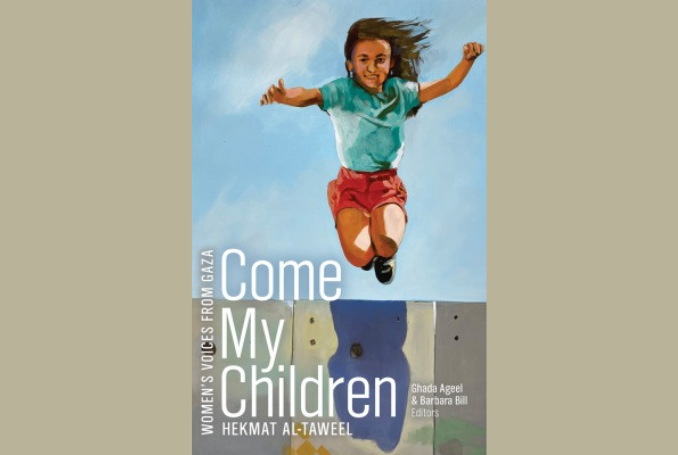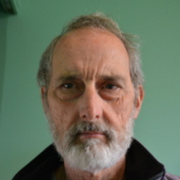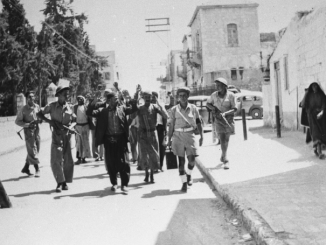
By Jim Miles
(Women’s Voices From Gaza: Come My Children. Hekmat Al-Taweel. Ed. Ghada Ageel & Barbara Bill. University of Alberta Press, Edmonton, 2023.)
The third book in the Women’s Voices From Gaza Series, Come My Children, adds new dimensions to the main themes of the first two, being family and education.
Hekmat Al-Taweel did not receive the higher education found in the first two stories, A White Lie and Light the Road of Freedom.
They are still important, as Al-Taweel received top marks in her classes and through her love of the English language became highly functional, serving as a translator for many visitors to Gaza. Al-Taweel did not have children of her own but played a large part in the children of her larger family and with the children of her neighbors and acquaintances in Gaza.
From that comes two more emphasized concepts: first, the community as being an important factor in the raising of a child; and secondly, the easy manner in which she as a Christian Palestinian interacted with Muslim Palestinians, and the few Jewish people living near her.
One of her joys was raising a Muslim boy Yusuf as one of her own, with the blessing of the boy’s family. It makes the comment ‘it takes a village to raise a child’ come alive. It demonstrates that different peoples of different faiths can freely interact and celebrate each other’s holidays, holy days, their heartbreaks and their joy.
As I read through this third book, it became clear that a significant part of all three stories is the contrast of normal life before the nakba and the loss of normality after the occupation by the Zionists. Not all was smooth with the British occupation (mandate) but Palestinains were relatively free to travel, go away and return for holidays or a better education.
It was still mostly an agrarian society, and food was shared and distributed freely between the ethnic groups, each with their own particular favorite. Even though Al-Taweel says their society was patriarchal and “conservative and rigid minded” there still is a sense of community and family loyalty providing a base for the freedoms they lost under occupation, becoming “strangers in their own homes”.
Al-Taweel says there are “no differences between Palestinian Christians and Palestinian Muslims. We lived together in peace and harmony and with no problems, because in the end, we are all Palestinians.” As typical of readings of Palestinian history at the people’s level, her goal is to “have peace in our land…we will never give up hope that one day Palestine will be free. It might not be in my lifetime, but it will eventually come.”
Hakmet Al-taweel’s words are another important addition to the written historical record of Palestine. Her voice has been heard and recorded and her memory and heritage will carry forward regardless of attempts at erasing Palestinian culture and geography. Come My Children is a short powerful read, a positive addition to history, expressing a wish to return to the harmony of life before occupation.

– Jim Miles is a Canadian educator and a regular contributor/columnist of opinion pieces and book reviews to Palestine Chronicles. His interest in this topic stems originally from an environmental perspective, which encompasses the militarization and economic subjugation of the global community and its commodification by corporate governance and by the American government.







